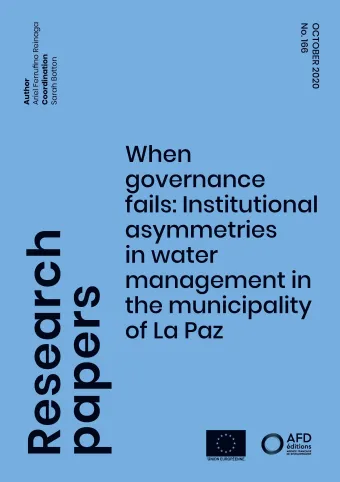Share the page
When governance fails: Institutional asymmetries in water management in the municipality of La Paz
Published on

This article reflects on the emergence of asymmetries in the institutionality of the water and sanitation sector, primarily caused by the presence of political, social and economic forces that catalyze a process of liquefaction of sectoral and competence-driven regulations by the main actors. In other words, the rules of the game for organization and institutional management of the resource are not followed, producing instability in provision of the service, to the point of bringing about a supply crisis (as happened in the city of La Paz in November 2016). In Bolivia, where water is a fundamental human right, the sector institutions tend to generate actions that are contrary to good governance. Good governance would establish an ideal symmetry characterized by institutional correspondence according to the competences of each actor, interdependence, associativity, trust and continuous participation, and by power relations subject to greater political will in the search for solutions, compliance with sectoral regulations and technical criteria to enhance the sustainable access to services for the entire population.
Useful Information
-
Authors
-
Ariel FERRUFINO REINAGA (CIDES-UMSA)
-
Coordinators
-
Sarah BOTTON
-
Edition
-
166
-
Number of pages
-
28
-
ISSN
-
2492 - 2846
-
Collection
-
Research Papers
